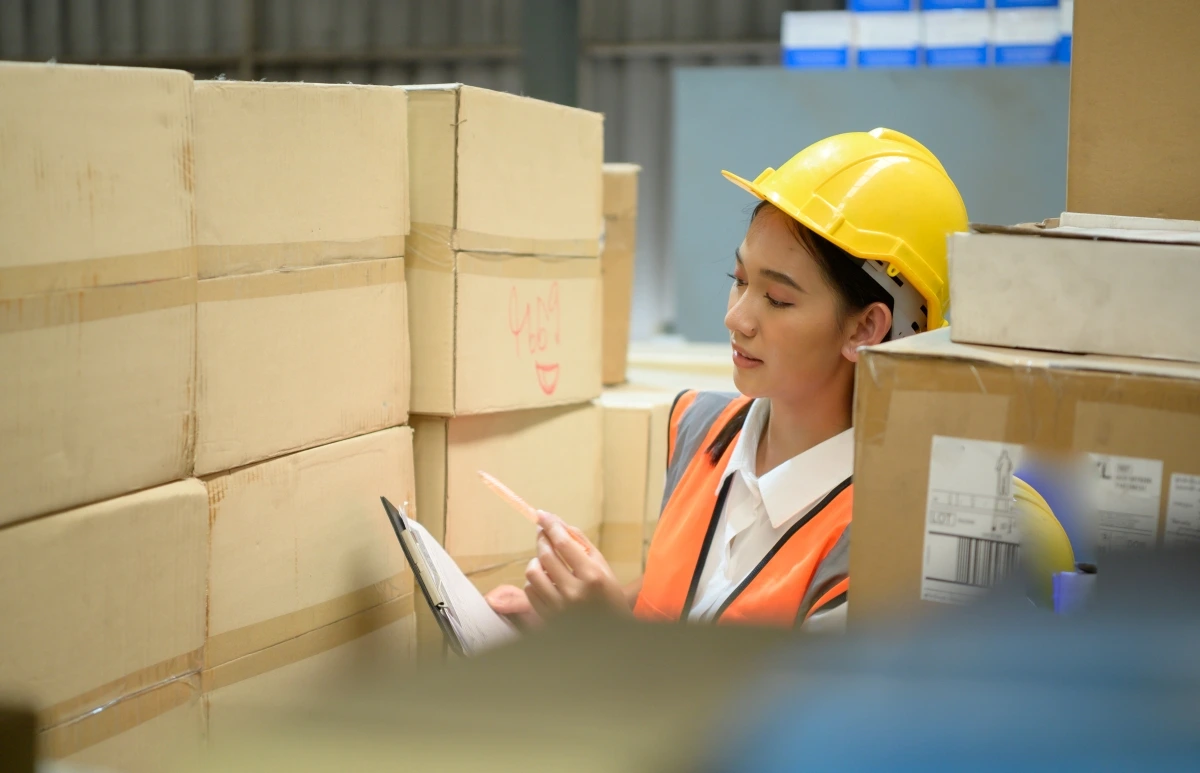
17-09-2025
3 Ways to Check HS Code & How to Read It
Have you ever heard about HS Code? The HS Code is an important code in the shipping sector because it shows product classification, especially for exporting and importing goods.
Then, how to do an HS Code check and how to read the code? Through this article, you will learn about the HS Code for logistics purposes. Thus, read this article until the end!
What Is the HS Code?
The HS Code, or Harmonized System Code, is a standardized coding system developed by the World Customs Organization (WCO) and has been utilized by more than 200 countries worldwide.
This code works to determine the tariff and customs tax, standardize goods classification, avoid classification fraud, and identify goods by customs.
In general, HS Codes consist of a series of numbers that represent categories, specifications of goods, and subcategories. These codes are internationally recognized, so almost all parties use them as a standard.
However, each country can also develop its own codes following applicable policies. That’s why each country may have different codes, but the first six digits of these codes are international.
Then, can an HS Code expire? The HS Code is very dynamic. WCO usually revises the code every 5 years, so perhaps your code might already have changed. Therefore, you must update it and match it to the global market change.
Read also: What Are FPSO Vessels? How They Work and Their Advantages
How to Do the HS Code Check

As explained before, the HS code is useful to determine tariffs and customs. In addition, the code often changes, especially when there are changes in international trade. Therefore, you must check the code often. Here is how to do so:
1. Through BTKI
The first method of the HS Code check is through BTKI (Buku Tarif Kepabeanan Indonesia) Bea Cukai. In Indonesia, Direktorat Jenderal Bea dan Cukai has regulated the code via BKTI. You can download the guidelines from the Ministry of Finance’s official website.
2. Through INSW
You can also check the code through the Indonesia National Single Window (INSW) by accessing insw.co.id and logging in to the Commodity Detail Search based on HS Code. Then, insert the product to look for the code. After that, INSW will show various categories relevant to your search.
3. Through the Customs Office
You can also find the HS Code at the customs office, where you can find a guidebook containing a complete list of HS Codes. You can also purchase it directly if needed.
How to Read the HS Code
Aside from checking the HS Code, you must be able to read it, especially if you plan to export your goods. Internationally, the HS code contains 6–10 digits, based on the regulations in the country.
For the 6-digit codes, you can read them as follows:
- The first two digits represent the general product category.
- The middle two digits represent the product subcategory.
- The last two digits represent the specific product description.
For example, you find an HS Code of 0804.50.
- 08 is the category for edible fruits and nuts; orange or melon peels.
- 04 is the subcategory for dates, pineapples, avocados, mangoes, mangosteens, figs, and guavas.
- 50 is the code for mangosteens, guavas, and mangoes.
So, if you import mangosteens, guavas, or mangoes, you can use 0804.50.
Moreover, if you use the 8-digit codes, here is how to read them:
- The first two digits represent the general product category.
- The second two digits represent the product heading.
- The third two digits represent the subheading.
- The fourth two digits represent the subsubheading.
An example of an HS code is 0805.10.00. 08 is the category for edible fruits and nuts; orange or melon peels. Then, 05 means orange, while 10 means fresh or dried orange. The 00 at the end is a sub-subheading 00, meaning there are no further details.
Read also: Understanding Free On Board (FOB), Types, and Advantages
What Will Happen When You Use the Incorrect HS Code?

Incorrectly using the HS Code might become a serious problem for your export-import activity. Moreover, you can get fined, and your logistics process might be postponed. Here are some risks that might happen if you use the incorrect HS Code:
1. Invalid Tariff
HS Codes are regularly updated (every 5 years by the WCO) to adapt to changes in industry, global markets, and new products. If you are still using the old code, customs may reject it because the applicable tariff is no longer valid.
2. Invalid Product Classification
The risk of product misclassification also looms if the HS Code used is inaccurate. This can result in incorrect tariff assessments and the risk of fines for customs fraud. Therefore, make sure you conduct thorough research on the code to be used.
3. Regulation Cheat
Some importers deliberately use incorrect codes to obtain lower tariffs. This can be detected by customs officials, resulting in fines or the confiscation of goods.
4. Incorrect Region
The HS Code is also used to determine the country code so that you can obtain the export tariff to the destination country. If you use the wrong code, you may apply the code to another country, which is invalid.
5. Incorrect Treatment of Your Goods
The shipping company may mishandle goods due to incorrect use of codes that do not match the agreed specifications. Therefore, provide the correct specifications and product codes so that products can be classified accurately.
That concludes the information about how to do the HS Code check and other information about the code. As mentioned before, you must follow the code development to prevent using invalid code.
Along with that, you must also use the correct and reliable shipping service, especially for chemicals and gases that need special treatment. In this regard, you can rely on Chandra Asri Group.
The logistics solutions by PT Chandra Daya Investasi Tbk are ready to ship your chemicals and gases using nine vessels of 5,000–106,650 DWT capacity. This number can increase in the future.
Furthermore, Chandra Asri Group also serves land transportation through PT SCG Barito Logistics and PT Chandra Cold Chain with 155 trucks and warehouses across Cilegon and Java. So, entrust your chemical and gas logistics to Chandra Asri Group!
Read also: Get to Know Sea Freight and Its Development in Indonesia
.png&w=3840&q=75)
.png&w=3840&q=75)